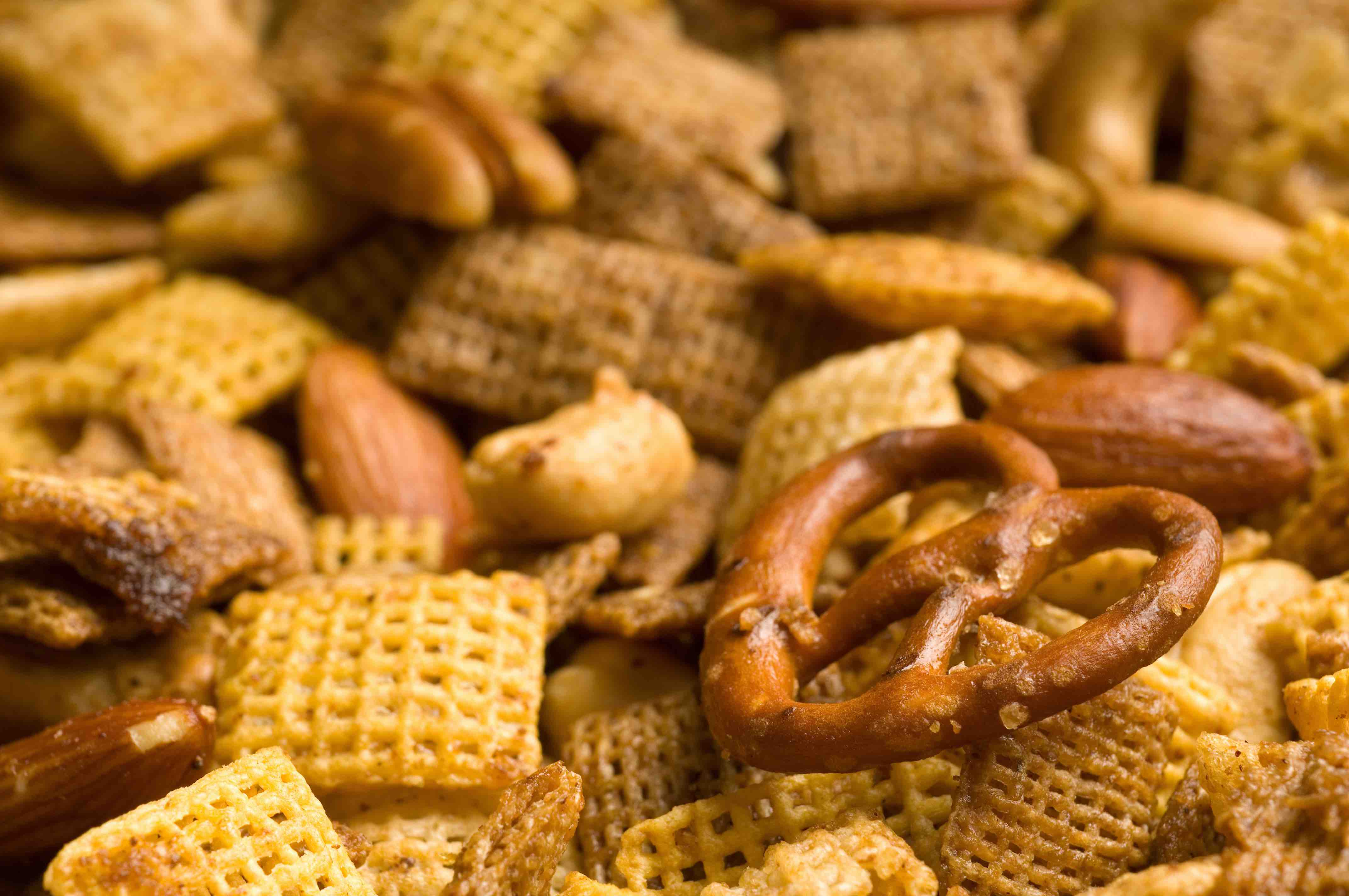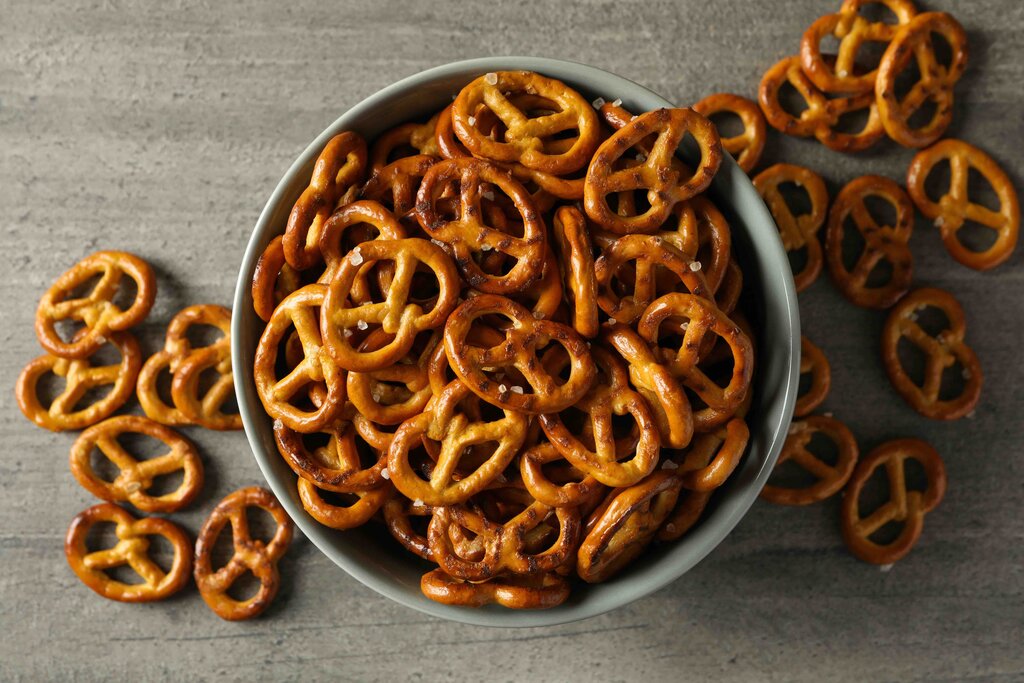
One of the most beloved snacks, the humble pretzel, has charmed people with its simple, twisted shape and distinctive crunch. But what lies beneath the surface? Here, we delve into 19 key nutrition facts about pretzels to help you understand exactly what’s in your snack bag.
For the purposes of this analysis, we’re examining a typical serving size of one ounce (28 grams) of hard, salted pretzels. So, grab a pretzel, and let’s dive in!
Caloric Content
A one-ounce serving of pretzels provides around 110 calories. It is a much healthier snack in comparison to Cheez-Its or Doritos. Whether you’re aiming to maintain a healthy weight or looking for a light and tasty snack, pretzels fit the bill.
Carbohydrate Content
Pretzels are high in carbohydrates, with about 23 grams per one-ounce serving.

Fat Content
A serving of pretzels typically contains approximately 1 gram of fat.
Low in Saturated Fat
Pretzels are low in saturated fat, with less than 1 gram per serving. So, when you’re looking for a guilt-free gaming snack, pretzels make a smart choice that won’t weigh you down.
No Trans Fat
Pretzels do not contain trans fat as well, so you do not have to worry about working extra hard to burn those stored fats away.
Sugar Content
Most pretzels contain less than 1 gram of sugar per serving.
Sodium Content
The sodium content in pretzels is relatively high due to added salt, with about 352 milligrams per serving. Moderation is key, especially if you’re watching your sodium intake. High sodium intake can cause high blood pressure.

No Cholesterol
Great news for those watching their cholesterol levels, pretzels contain zero cholesterol. This is great for the heart, significantly reducing any risks of cardiovascular diseases.
Dietary Fiber
A serving of pretzels provides 1 gram of dietary fiber.
Protein Content
Pretzels contain approximately 2.8 grams of protein per serving.
Contains Iron
Generally, pretzels provide about 1.3 milligrams of iron. That is about 7% of the daily value of iron that we should take.
Contains Several Vitamin Bs
Pretzels also contain thiamin (B1), riboflavin (B2), and niacin, another B vitamin.
A Source of Energy
Pretzels contain 23 grams of carbohydrates in just a one-ounce serving. This high carbohydrate content in pretzels provides a quick source of energy.

Has Folate
This may come to you as a surprise, but pretzels provide folate, a nutrient important for cell growth and metabolism. That said, do not down an entire bag in hopes of promoting cell growth and a boost in metabolism. All things are in moderation.
Contains Manganese
Pretzels contain manganese, a mineral that plays a role in many body functions.
Contains Phosphorus
Pretzels provide phosphorus, an essential mineral for bone health.
Low in Calcium
While pretzels are a delightful snack, they don’t boast a significant amount of calcium, only 7.7 milligrams. That only fulfills 1% of the recommended daily calcium intake.
Allergen-Friendly
If you have common food allergies, pretzels are usually a safe bet. They are often free from common allergens like nuts, dairy, and eggs, making them a suitable option for many snack enthusiasts.
Gluten-Free Options
For those with dietary restrictions, gluten-free pretzels are available. Several brands, including big names like Gratify and Snyders have come up with their own gluten-free snack.

Whole Wheat Alternatives
Whole wheat pretzels are a wholesome alternative to traditional pretzels. They contain more fiber and nutrients, making them a slightly healthier option while still delivering that classic pretzel taste.
Final Word
There you have it—19 key pretzel nutrition facts that reveal the secrets behind these twisted delights. So, the next time you reach for a pretzel, you can savor each bite knowing that you’re enjoying a snack that’s low in fat, high in crunch, and packed with carb-powered energy. Happy snacking!
Was this page helpful?
Our commitment to delivering trustworthy and engaging content is at the heart of what we do. Each fact on our site is contributed by real users like you, bringing a wealth of diverse insights and information. To ensure the highest standards of accuracy and reliability, our dedicated editors meticulously review each submission. This process guarantees that the facts we share are not only fascinating but also credible. Trust in our commitment to quality and authenticity as you explore and learn with us.
